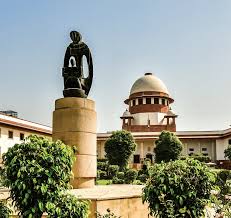Civil Procedure Code, 1908, Section 10, 16, 20 and 25 – Transfer of petition – Suit property situated in Sehore, Madhya Pradesh – Section 16, CPC inter alia provides that suits for the determination of any other right to or interest in immovable property shall be instituted in the Court within the local limits of whose jurisdiction the property is situate – Thus, the petitioner’s reliance on the cause of action arising in Calcutta due to the MoU being executed at Calcutta held to be completely erroneous in view of Section 20, CPC, which provides that a suit can be initiated where the defendant resides or cause of action arises is a residuary provision only applicable to cases beyond those in Section 15 to19, CPC – Thus, this Section has no application in this case as when the subject matter of the MoU is the suit property located at Sehore – Suit filed at Sehore, Madhya Pradesh was earlier in time – Section 10, CPC inter alia mandates that no Court shall proceed with the trial of any suit in which the matter in issue is also directly and substantially in issue between the parties, litigating under the same title, where such suit is pending in the same or any other Court in India having jurisdiction to grant the relief claimed – Since the suit property is located in Sehore, all property records and government documents would be present in the vicinity, including most witnesses – Suit property is mortgaged to Bank of Baroda, through its Bhopal branch and an auction has taken place on the strength of which the Bank, as well as the auction purchasers have been impleaded in the suit filed at Sehore – Transfer PetitionNo.2664 of 2023 liable to be dismissed – Transfer Petition (Civil) No. 499 of 2024 allowed and hence TS No.1346 of 2023 pending before the City Civil Court at Calcutta, West Bengal liable to be transferred to the Court of Principle Judge, Sehore, Madhya Pradesh – After the matter is transferred to Court of Principle Judge, Sehore, Madhya Pradesh, the transferee Court shall give fresh notice to all the parties by fixing a date and the aforesaid matter shall proceed at the transferee Court from the stage it was left at the City Civil Court, Calcutta, West Bengal.(Para 6 to 10)
SUPREME COURT OF INDIA
2024 STPL(Web) 199 SC
[2024 INSC 248]
M/S ACME PAPERS LTD. Vs. M/S. CHINTAMAN DEVELOPERS PVT. LTD. & ORS.
Civil Original Jurisdiction Transfer Petition (Civil) NO. 2664 of 2023 With Transfer Petition (Civil) No (s).499 of 2024-Decided on 22-03-2024
https://stpllaw.in/wp-content/uploads/2024/04/2024-STPLWeb-199-SC.pdf







